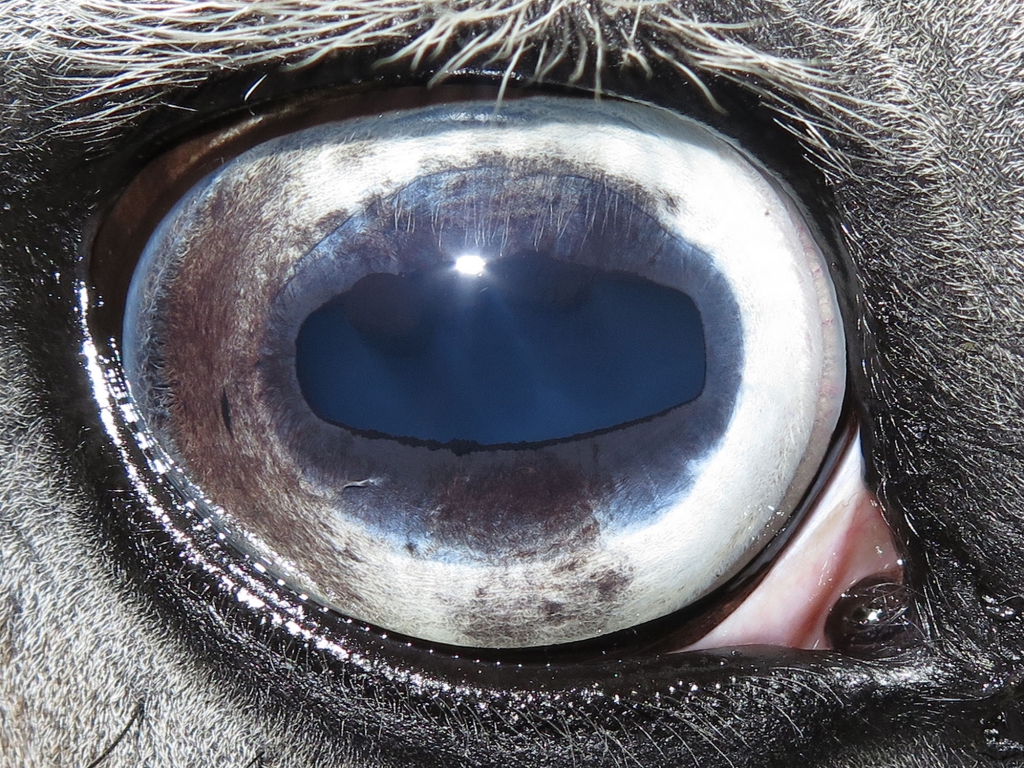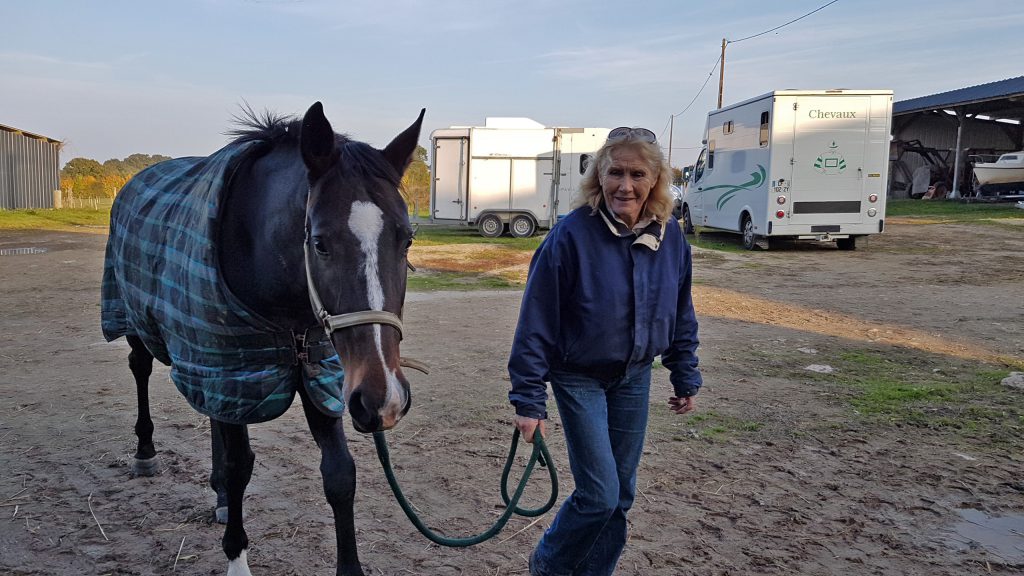Iridology is a centuries old scientific study/analysis of patterns and structures in the iris. A non invasive and painless method enables a trained person to recognise root causes of temperament, behavioural, health or performance issues. In the present we can see inherited and congenital strengths and weaknesses, pathological changes to the fibres of the Iris; conditions and inherited weaknesses, site of over activity, irritation, inflammation, degeneration of tissues and organs and toxic accumulation. Iridology enables you to virtually see inside the horse.
Iridology is a safe way to examine the iris. The eyes are connected to the nervous system and therefore tissue in the iris accurately registers what is happening in the body. An iridology can indicate what is happening now, whether there is old damage, but also what may be coming. It indicates quite accurately whether organs are under pressure, possible injuries, the state of digestion, parasites and stomach ulcers. The likelihood of conditions and problems manifesting before they develop into more serious cases or diseases. Old injuries, scarring, accidents, traumas, which could trigger future problems can also be seen. The organs we commonly see affected are the liver and kidneys due to modern regime and feed. If the liver or kidneys are malfunctioning this hugely affects the function of the other organs and can lead to a huge scenario of issues like indigestion, loss of appetite, or eating well but not gaining weight, not absorbing nutrients efficiently, diabetes, cholesterol problems, hormone imbalances affecting mares, stallions and breeding and also muscle efficiency / tying up, behavioural problems, mood swings, and many more variations and scenarios.
Certain hereditary properties can also be traced back. Iridology is now an integral part of many training courses, including the medical schools of Moscow and the medical department of the University of Paris Nord.
Iridology provides a virtual glimpse into the horse, allowing you to quickly identify problems that can cause physical but also behavioral problems. Horses are regularly misdiagnosed because there is too little information available and because the horse itself has difficulty communicating. With iridology you can see where the problem is, but also which hereditary properties or old injuries are influencing the body.
Iridology can also be helpful when purchasing a horse. Things that are not seen by a regular examination are often visible in the iris. This way you can see whether there are hereditary ‘weaknesses’ or whether organs are under stress. You can also see (old) trauma that can influence future sports performance.
If you want to learn to read the iris, join the Ellen Collinson Iridology course, the course is currently only available in English.


